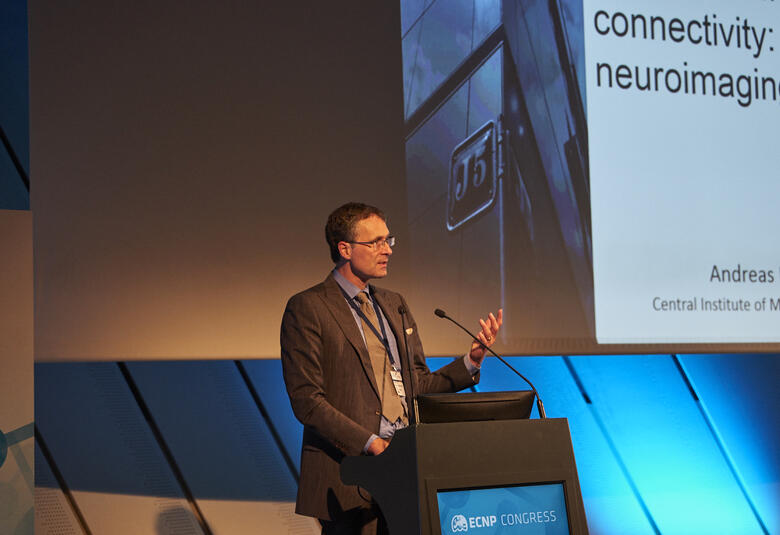In the USA, OnTrackNY and the Early Psychosis Intervention NETwork (EPINET) are different parts of a coordinated approach that helps the recovery of those dealing with early psychosis. Both approaches are founded upon taking research programs, usually based in specialized clinics, out into the wider community. Such an undertaking is not straightforward and involves considerable planning and foresight. At SIRS 2021, those leading OnTrackNY and EPINET offered their perspectives.
Professor Lisa Dixon, New York State Psychiatric Institute, New York, NY, described how her team took a clinically-developed treatment program and rolled-it out statewide – and the careful planning needed to ensure its success.
OnTrackNY – covering New York state
OnTrackNY is an innovative treatment program for adolescents and young adults, who recently have been having unusual thoughts and behaviors or who have begun seeing or hearing things that others don’t. OnTrackNY helps people achieve their goals for school, work and relationships. It offers multi-element, multi-disciplinary team-based care for those with onset of psychosis ≥ 1 week and ≤ 2 years. Those with clinical high risk and affective other than schizoaffective disorders are excluded from the program.
Innovative treatment programs are running for adolescents and young adults who recently have been having unusual thoughts and behaviors or who have begun seeing or hearing things that others don’t
23 OnTrackNY programs are running in various population centers in New York state Currently, 23 OnTrackNY programs are running in various population centers within New York state. A March 2021 dashboard reports a total of 2,270 enrolled and 833 active patients, with an average time from onset of psychosis to admission of 7.6 months. Patients’ average age is 21 years, most live at home, and the patient base is multi-ethnic and multi-cultural. The program is available to all regardless of insurance status. At 12 months follow-up, improved employment/educational status (70% from 42% at entry) was noted and patient engagement was 75%. The program has recently received funding to expand.
Centre for Practice Innovations
The definition of a Centre for Practice Innovations (CPI) is an organization that acts as an intermediary between multiple entities and promotes the implementation of model programs with fidelity and good effect. Essentially, an intermediary organization ensures the program’s providers build-in and sustain best working practice when devising its outreach programs.
An intermediary organization ensures the program’s providers build-in and sustain best working practice when devising its outreach programs
Settings and strategies
The CPI Practice Change Model offers a consolidated framework to support the implementation of research-based initiatives.2 Contained within formal inner and outer settings are strategies for the pre-implementation, implementation and maintenance and evolution of a healthcare initiative. Clinicians devising healthcare initiatives will usually only be familiar with the implementation strategy outlined within the inner setting, however, to roll-out an initiative or program to multiple sites effectively requires implementing all three strategies in both settings, i.e., six boxes need to be ticked.
In order to do this, access is needed not only to national and regional offices but to staff members to monitor and assist those implementing programs and support data collection and its collation.
Data collection and stakeholder feedback is fundamental to the establishment of accountable and transparent best practice
Data collection and stakeholder feedback is fundamental to the establishment of accountable and transparent best practice as it informs all interested parties – from government to patients and their families – about the effectiveness of the service being provided at all outreach hubs. And, importantly, it ensures the improvement and evolution of services as time goes on.
EPINET – early psychosis management going national
This latter statement could also applies to the roll-out of national initiatives. Dr Robert Heinssen, NIH, described EPINET, the national Early Psychosis Intervention NETwork, designed to advance the services, outcomes and scientific discovery in first episode psychosis.
A unified approach to data collection will allow it to be shared across a variety of networks and supports learning healthcare
EPINET seeks to cultivate a culture of collaborative research participation in academic and community-based early psychosis centers. It does this through the standardization of clinical features, interventions and outcomes, the optimization of informatics approaches to the study of treatment quality and clinical impact value, and the sharing of tools and best practice across coordinated specialty care (CSC) programs nationwide.
With a single national data coordination center and 8 regional practice-based networks (including OnTrackNY), this structure currently supports 12 state mental health authorities, 101 CSC programs and 5-8,000 young patients with psychosis.
Consistency is key when generating large data sets
Like OnTrackNY, EPINET’s data collection and collation methodology has been carefully thought out. An agreed Core Assessment Battery (CAB) forms the basis of consistent data collection over a 5-year period within the CSC programs. Such a unified approach to data collection will allow it to be shared across a variety of networks and supports learning healthcare and research goals by capitalizing on the large, accrued data sets.
Our correspondent’s highlights from the symposium are meant as a fair representation of the scientific content presented. The views and opinions expressed on this page do not necessarily reflect those of Lundbeck.




